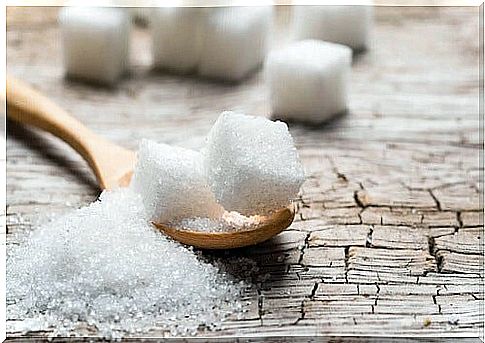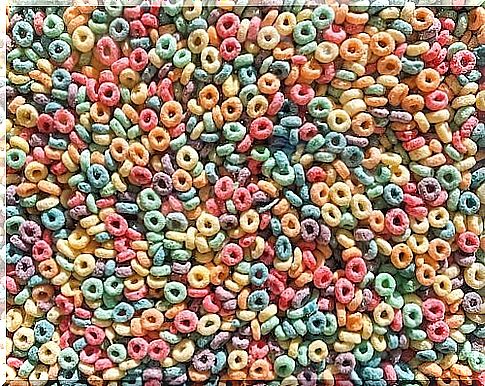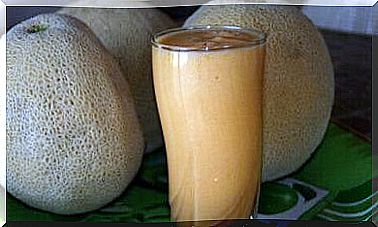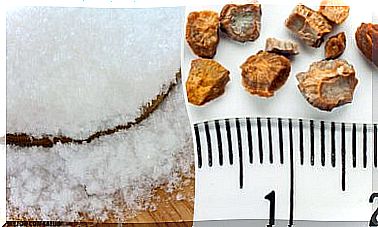Do We Really Need Sugars?

Simple sugars have a negative effect on the body by increasing the burden on the pancreas caused by the need to produce large amounts of insulin.
As ketogenic diets increase in popularity, many people wonder if we really need to consume sugars to keep our bodies in good shape. The truth is that in recent years experts have come up with different views. That’s why we’re going to tell you everything science has to say about it.
Before we begin, it’s important to note that today’s population tends to consume sugar in large amounts. This is mainly due to the increase in the consumption of industrial ultra-processed foods. It is often high in simple sugars and trans fats to improve the organoleptic properties of the final product.
What are sugars?

When we talk about sugar as such, we are referring to a type of simple carbohydrate consisting mainly of glucose units linked together by bonds.
Although these units can form more complex structures, they are generally absorbed very quickly in the intestine. For this reason, they increase the amount of insulin produced, which is harmful in the medium term. Sugars can contain the following nutrients:
Monosaccharides
These substances are classified as simple sugars. They usually consist of a series of glucose molecules linked by straight bonds. Their regular consumption is associated with a worse health condition, as they affect metabolic processes and increase the risk of being overweight. This is evidenced by a study published in the journal Frontiers in Bioscience .
Disaccharides
Disaccharides are formed by linking monosaccharides with an o-glycosidic bond. They have a slightly slower absorption rate than the previous ones, although they are still classified as simple sugars. For this reason, their consumption should be as limited as possible.
Polysaccharides
Polysaccharides are carbohydrates composed mainly of glucose, although they form a network of connections that greatly increases their molecular weight. For this reason, they are classified as complex sugars.
Their absorption rate is reduced and therefore their effect on the body is different. These compounds are capable of generating lower blood glucose spikes.
How does our body process sugars?
Carbohydrates reach the small intestine, where they are broken down into simple units by enzymes and then absorbed. Then they pass into the blood and thus raise blood sugar levels and stimulate the secretion of insulin – an anabolic hormone that allows nutrients to be transported to the cells or to the liver.

When exercise is performed, sugar reaches the muscle tissue, where it will be converted into energy ready for use. If a person is resting, it will be stored as either liver or muscle glycogen.
It is worth explaining that these deposits have a limited capacity. As soon as it is used up, sugar begins to be converted into fat in the liver for later build up in adipose tissue.
It should be noted that such an increase in lipid stores has proved to be detrimental to health, especially when it exceeds certain levels. From that moment on, inflammatory processes develop, which in many cases lead to the development of complex diseases.
What does the body use glucose for?
As mentioned above, glucose is mainly used for energy production. It is the fuel of choice for anaerobic metabolic pathways and can also be incorporated into aerobic metabolic pathways.
However, the latter also ingest fatty acids and even non-sugar glucose. The latter is formed as a result of physiological processes involving fatty acids and proteins.
It should also be noted that glucose functions as fuel for the brain. However, contrary to what was believed until recently, there are also other compounds that perfectly fulfill this function. An example is the ketone bodies formed during ketosis.
Is Eating Sugar Really Necessary?
The truth is, there are indications that sugar is not essential in the diets of a sedentary lifestyle. Even for athletes, its consumption is controversial. The body can function perfectly well when carbohydrate intake is low. In fact, this type of diet can be beneficial to the body.

Nevertheless, a low-sugar diet with complex carbohydrates may be considered. To this end, the consumption of sweets and ultra-processed foods should be significantly reduced, and the consumption of fresh food should be increased. Such a situation would be the golden mean and it would be the most beneficial for the functioning of the body.
It is better to avoid sugars from a distance
As already mentioned, sugar is a nutrient that adds little value to your diet. In fact, most experts advocate the need to reduce its consumption in people who lead a sedentary lifestyle.
The possibility of avoiding its consumption is also considered in athletes. This can increase the flexibility and efficiency of the metabolism in the medium term. It is clear that reducing its intake in the diet has a positive effect on health. However, this does not mean that you should completely cut off carbohydrates.
You can eat those with a low glycemic index, which are complex carbohydrates. They are found mainly in tubers and legumes.









